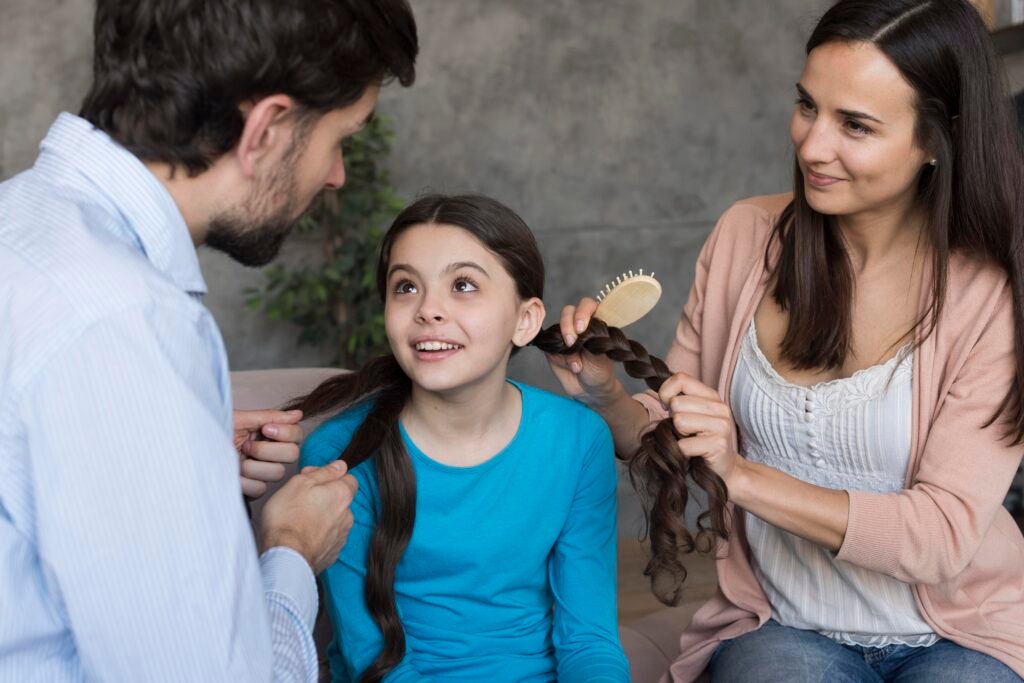
Navigating the conversation about sexuality with children can feel daunting, but it’s one of the most important conversations you can have as a parent. When approached with care and respect, these discussions can lay the foundation for healthy, respectful relationships and a positive understanding of their own bodies and emotions. The key is to make these discussions age-appropriate, allowing your child to grasp the concepts in a manner that suits their developmental stage. Here are some tips on how to educate your children about sexuality in an age-appropriate way.
1. Start Early, Keep it Simple
It’s never too early to start teaching children the basics of their bodies and boundaries. Young children should know the correct names for body parts, and you can begin by talking about respecting others’ bodies. At this stage, the focus should be on fostering a sense of self-respect and bodily autonomy, rather than delving into complex subjects.
2. Use Age-Appropriate Language
As your child grows, the complexity of the conversation will need to evolve. For toddlers and young children, simple language like “private parts are special” works best. As they get older, you can begin to discuss more detailed aspects of sexuality, relationships, and consent, always using language that matches their level of understanding.
3. Foster Open Communication
Children should feel comfortable coming to you with questions. Encourage an open and non-judgmental environment where your child knows it’s okay to ask anything. This helps prevent them from seeking information from unreliable sources, such as peers or the internet, which may not offer accurate or healthy perspectives.
4. Discuss Boundaries and Consent

Teaching your children about consent is one of the most important aspects of sexual education. Help them understand the concept of personal boundaries and respect for others. They should know that their body belongs to them and that they have the right to say no to any unwanted physical contact, no matter the situation.
5. Age-Appropriate Resources
Utilize books, videos, and other resources that are tailored to children’s ages. Many well-regarded publishers and educational websites offer guides that break down complex topics in ways that are easy to understand. These resources can complement your discussions and offer additional perspectives.
6. Lead by Example
Children learn a lot by observing their parents and caregivers. Model respectful relationships and healthy communication. This provides a practical example for your child of what a healthy, respectful relationship looks like, both emotionally and physically.
7. Keep the Conversation Ongoing
Sexuality education isn’t a one-time talk—it’s an ongoing conversation. As your child matures, you’ll need to revisit topics like puberty, relationships, and consent in more depth. Always be available for follow-up questions and ready to address new concerns that arise.
Conclusion:
Educating your children about sexuality in an age-appropriate way is a lifelong process that will evolve as your child grows. It’s about creating an environment where they feel safe, respected, and informed. By introducing these conversations early and fostering open, honest communication, you help your child develop a healthy understanding of sexuality and relationships that will serve them well throughout their lives.
Remember, every child is different, and you’ll need to adjust the conversations to fit their maturity and understanding. The goal is to empower them with knowledge, respect, and confidence to navigate their world in a positive way.
✍️ Caption:
Teaching your children about sexuality in an age-appropriate way is key to fostering healthy, respectful relationships. Here’s how to navigate these important conversations with care and clarity.
#SexualityEducation #ParentingTips #HealthyRelationships #SexEducationForKids #ChildDevelopment #AgeAppropriateEducation #PositiveParenting #FamilyHealth #SexualAwareness #ParentingSupport #EducationalParenting #TalkingToKids #SafeConversations #ParentingAdvice #RespectfulParenting
⚠️ Disclaimer:
Note – Write Blog article by applying best SEO practices like using high search volume keywords in the article and also give meta title, meta description, and focus keywords for applying in my website according to preferred character length. The blog article should contain transitional words according to best SEO.
Disclaimer: This blog is intended for informational and educational purposes only. The views expressed are personal opinions or general insights, not professional or legal advice. Readers should do their own research or consult relevant professionals before taking action based on this content.

